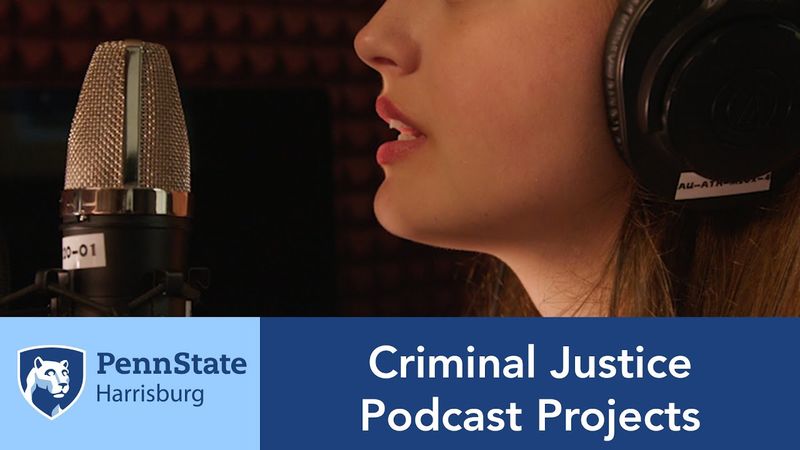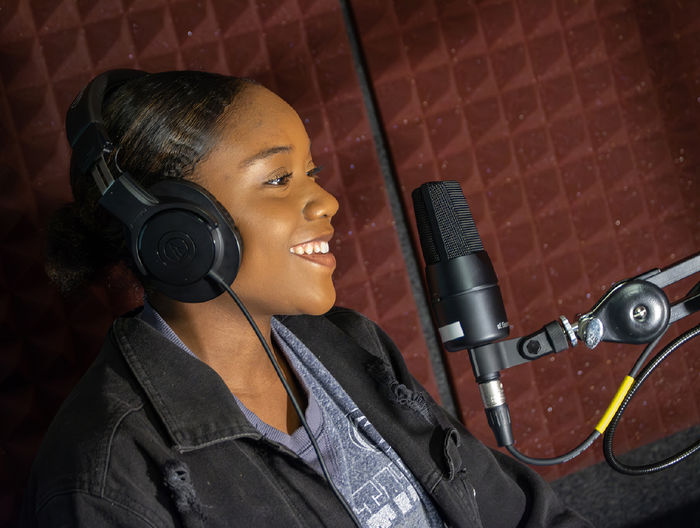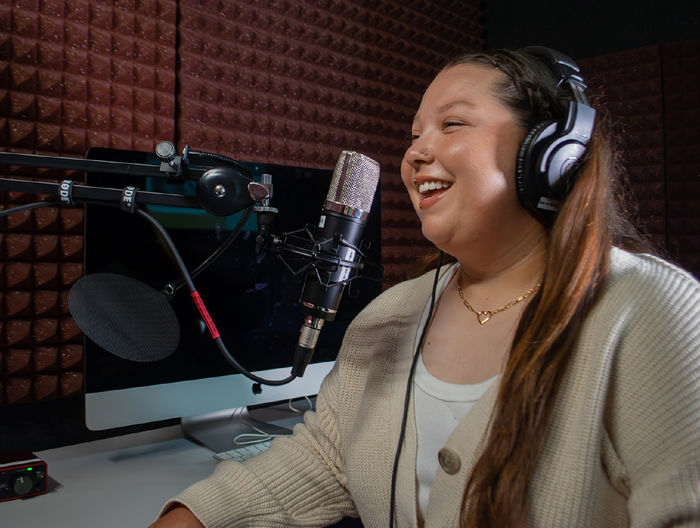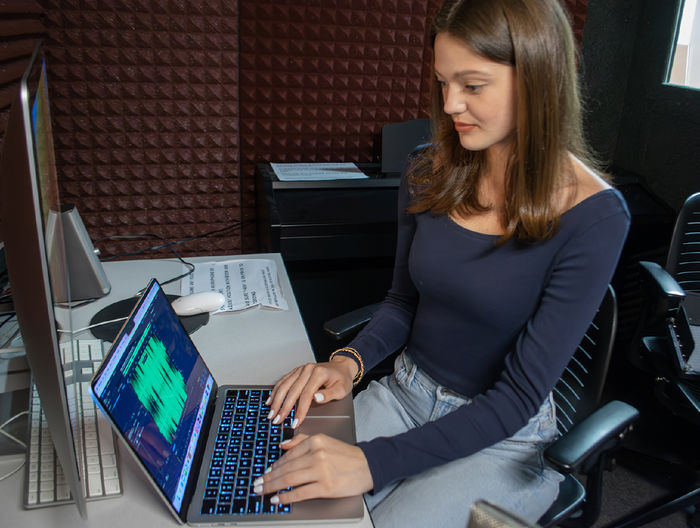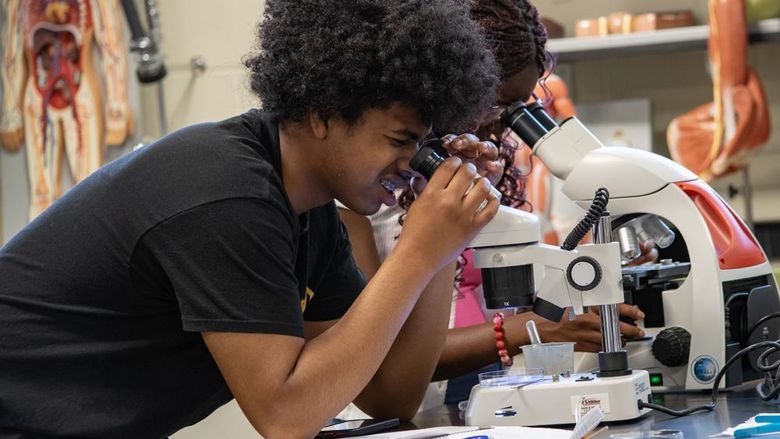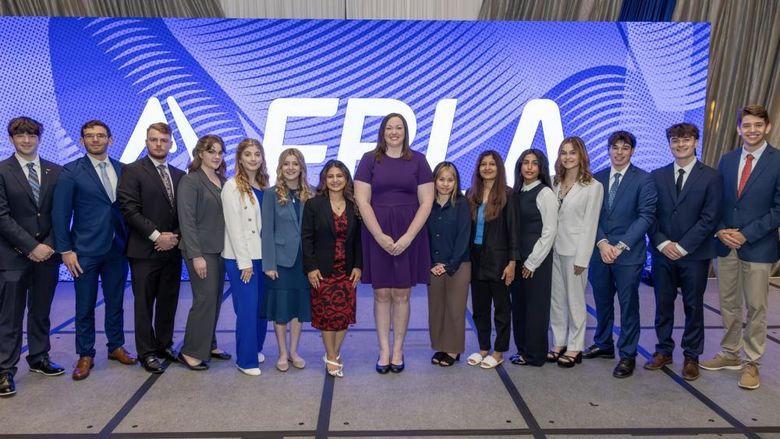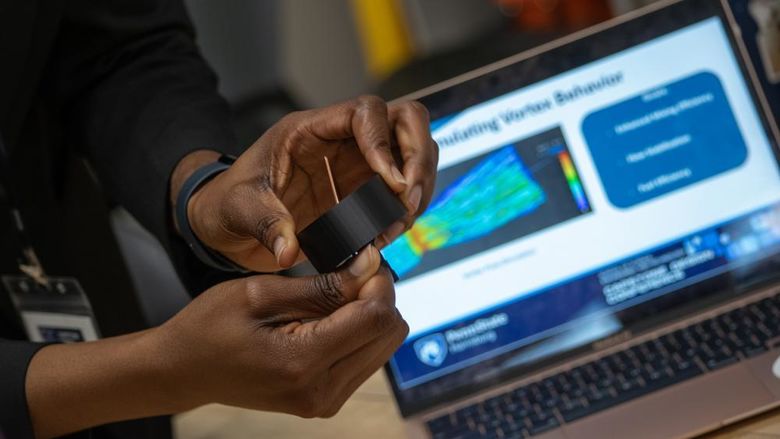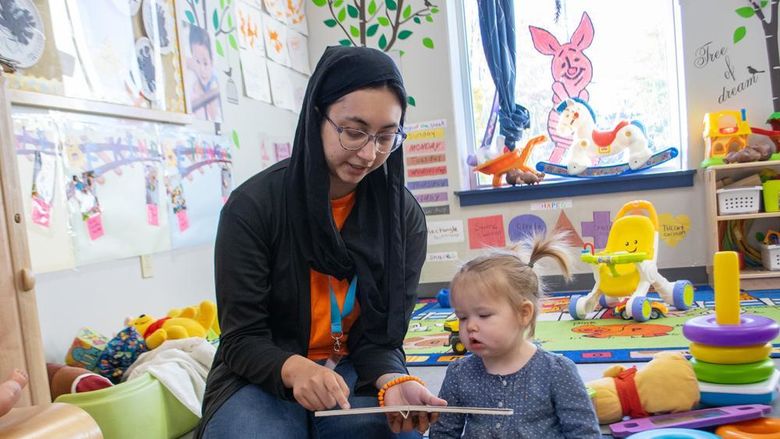
Students studying criminal justice with Shauntey James, assistant teaching professor of criminal justice at Penn State Harrisburg, turned to an alternative medium — podcasts — to share the research they conducted in class this spring.
MIDDLETOWN, Pa. — Students studying criminal justice with Shauntey James, assistant teaching professor of criminal justice at Penn State Harrisburg, turned to an alternative medium — podcasts — to share the research they conducted in class this spring, helping them build additional marketable skills while engaging a broader audience with their findings.
“I think what's cutting edge about the project was, it was a different format for them to disseminate their research,” James said.
For their final project, students in James’ three criminal justice courses — Introduction to Criminal Justice, Courts and the Prosecution Process, and Ethics in Criminal Justice — were given the choice of presenting their research by either creating a podcast or writing a paper.
All of her students chose to do a podcast, which James said showed her that they understand the importance of grasping new and different technologies. They presented their work at an event titled “Criminal Justice Student Podcast Symposium: A Journey in Criminology and Criminal Justice” in late April. The audience included community members and family, as well as representatives of local law enforcement and criminal justice agencies.
James said the project gave students a product as well as a presentation that they could list on their resumes.
“Technology is advancing, and especially within the criminal justice field, the students have to be mindful of what's out there and a different way of disseminating the information,” she said.
She added that interviewing sources for the podcasts gave them a chance to hear from professionals in the field about what they had discovered in their research.
“They had ownership in their knowledge base,” she said, adding that this enhances their appeal as criminal justice majors and aligns with Penn State's goal of empowering students to make meaningful contributions both professionally and personally.
Criminal justice major Makayla Galarza, whose podcast focused on females in juvenile facilities and truancy, said she chose the podcast option despite not being a big listener herself. A podcast sounded like a lot of work, she said, but she thought it was the kind of project she could be proud of in the end.
After compiling her own research, Galarza interviewed the director of a probation facility, putting a voice to the statistics she was finding about juvenile facilities and how young people end up in the system.
“It was good to get a perspective from somebody that was actually in the field,” she said.
James said many college offices helped students along the way, helping to ensure academic rigor in the projects: Staff from the Madlyn L. Hanes Library, the Center for Teaching Excellence, the Russell E. Horn Sr. Learning Center, and Teaching and Learning with Technology from University Park all assisted with aspects of the projects, such as conducting research, writing scripts, and actually editing and compiling the podcasts. Staff in the John Crain Kunkel Career Center helped the students polish their resumes before the showcase, where the audience included potential employers.
“I learned a lot,” said criminal justice major Rylee Martinez. “I've never done a podcast before, so I learned how to record. I also learned how to edit. … and I just learned a lot about the topic that I chose through the expertise and the research.”
Martinez and fellow criminal justice major Kaitlyn Thorpe worked together on a podcast about gender disparities in sentencing. They interviewed a defense attorney and an attorney who works on death penalty cases.
Thorpe was in two of James’ classes, so she also produced a second podcast on capital punishment. She almost chose to write a paper, she said, because the assignment was so different and she was nervous about learning the tech skills.
“It was difficult and I kind of underestimated how difficult (using the audio editing software) would be,” she said, adding that she learned how to navigate the tools by the end of the project. “The networking that I was able to do and talking to people in the field that I want to go into was really beneficial, and it was a great experience.”
Additionally, she said, she learned more about speaking to people in a professional setting, which can be intimidating, and how to interview her guests to get the most out of their conversations.
“It helped me learn the material from the class by applying it to the real world,” Thorpe said. “I was able to kind of see how the court system works in everyday life. … There's a lot of discretion in the criminal justice system and being able to see how that plays out in the real world is really important.”
